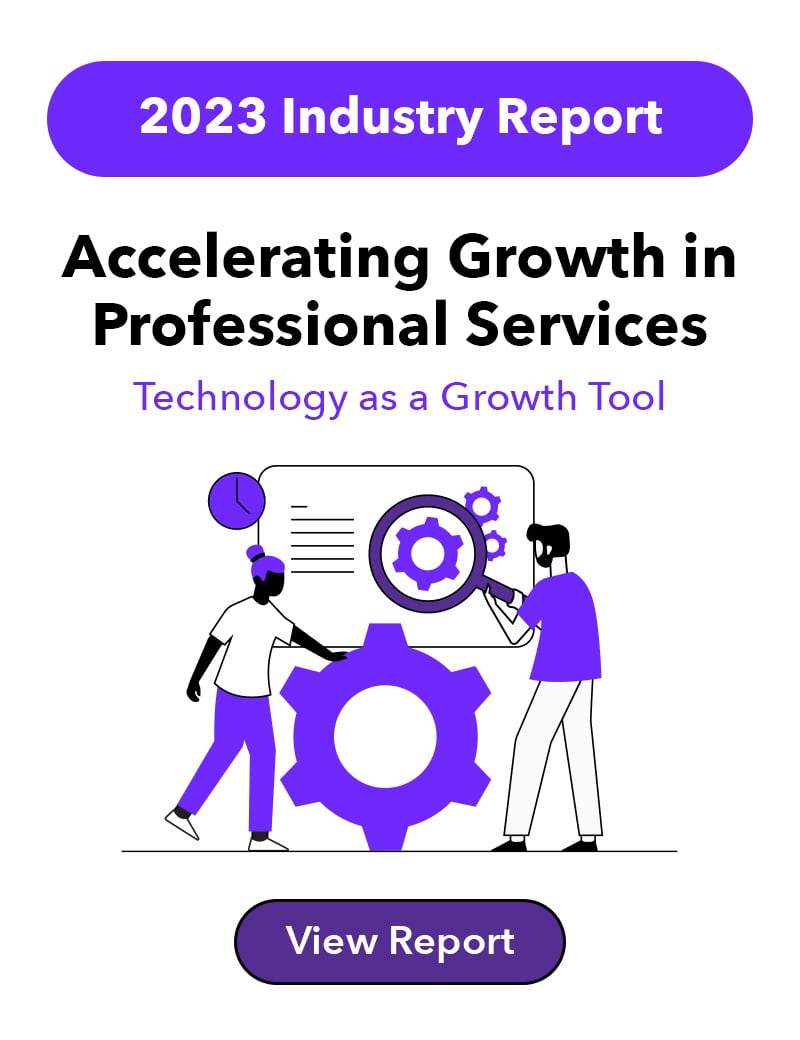Content is everything. It provides organizations with an avenue to showcase their expertise and provide value to their audience. It creates a more reciprocal and well-rounded relationship between firms and customers. In turn this leads to scalable growth for firms.
Creating content like blogs/white papers and recording videos that share your specific knowledge is a crucial part of any effective marketing strategy. Content marketing for accounting firms is how you take those ultra-valuable assets and put them in front of the right audiences, with the ultimate end goal be to create engaged and loyal clients.
What is Content Marketing for Accounting Firms?
According to the Association for Accounting Marketing (AAM), content marketing for accounting firms shares the wealth of knowledge that CPAs have, which benefits both businesses and individuals. Content marketing includes everything from blogs and white papers to infographics and videos. But not all accounting firms recognize and act upon the value of content and content marketing.
While Hinge’s High Growth Study 2022 shows that creating content is the top marketing priority for professional services firms this year, accounting and financial services are lagging behind when it comes to the race to generate digital leads.
The study found that the technology and software industry generates the most leads from digital sources at 43.8%, while legal firms and legal services and accounting and financial services come in second and third respectively at 40.5% and 37.6%. This points to a massive opportunity for your accounting firm to differentiate itself from the rest.
Developing content that aligns with your content marketing strategy is the key to its success.
What Kind of Content Should Accounting Firms Create?
One of the biggest initial hurdles to overcome when launching a content marketing strategy is building out a framework for your calendar. An easy place to start is to consider the two different buckets into which your content can fall:
- Educational content. Firms create this kind of content - typically optimized for search engines to boost discoverability - in order to help their audience better understand pain points related to that industry. This could be in the form of blog posts, eBooks, guides, checklists, infographics, etc.
Examples of how this content may look are:
- Glossary of X terms
- How to prepare for X
- Common mistakes in X and how to avoid them
Educational content should be primarily focused on providing tangible advice for the audience. While there may be some self-serving aspects - i.e. adding CTAs to book a meeting or to fill out a form - the overall tone of the content should be geared towards the audience's benefit. The strategy behind this is to stick out in your readers' minds as a helpful resource that they will refer to when they need more advice, and ultimately will reach out to when in need or services.
- Thought leadership content. Not all content that an accounting firm puts out should be advice-driven. There also needs to be content that demonstrates their understanding of the industry around them. Thought leadership content can help highlight this expertise while still being beneficial to the audience.
The format of this kind of content may look similar to the educational content - i.e. eBooks, blog posts and whitepapers - but the tone will be much broader. Topics that are typically included in this category are trend forecasts, industry research and editorials from leadership teams.
It's important to curate this content to the niche that you are knowledgeable about and experienced in so that your brand can truly speak from a position of authority and provide nuanced insight on the topic.
Best Practices for Content Marketing for Accounting Firms
Creating content is not simple, even when you have your framework for the content calendar laid out. It can be difficult to know how to craft this content in a way that makes an impact on their firm growth and customer loyalty in the longterm.
According to Joe Pulizzi, author of Content Inc., there are several tips accounting firms can put into action create content that their clients will crave.
- Focus Your Content. Your audience is likely already flooded with content. Pulizzi notes a big mistake that accounting firms can do is add to that clutter. Focus on putting out content that packs a punch instead of getting lost in the shuffle. And pull any content that isn’t making an impact or isn’t being engaged with. Less, but more powerful content is better than tons of so-so content.
- Use Your Unique Knowledge. Figure out what your accounting firm does best and use that specialty in your content, especially if it’s something your competitors don’t do. Pulizzi says the more specific you get with your audience, the more niche you can go with your content, the more precise you’ll be with your audience’s pain points.
- Be Consistent with Content. Develop a schedule that makes sense for your content and stick with it. You may decide your content marketing for accounting firm’s strategy includes weekly blogs that are more than 500 words. Pulizzi suggests after you decide when to publish content, start by posting on one or two platforms, like a newsletter and a social media platform.
- Build Your Content Library. Some accounting firms struggle to set aside time to create content due to working in a field where billable hours are common practice. Get around this issue by seeking help from outside your firm by hiring a contractor. Look at who is writing for your competitors and reach out to them. Or consider purchasing content from industry partners and collaborators, like associations. Pulizzi suggests again to look at who your competitors are working with and start building relationships with those partners.
Data Management and Content Marketing for Accounting Firms
Data and content marketing go hand-in-hand. Great data can not only tell you how well your content is performing, but data processes and marketing automation for professional services can aid in creating content such as tombstones and proposals.
The importance of social proof
Consider boosting social proof in the content that your accounting firm distributes. Social proof is the idea that consumers will adapt their behavior according to what other people are doing, according to HubSpot. When you generate and add tombstones - or visual displays of relevant previous work - to proposals, you’re telling potential clients that others like them have trusted you to deliver on your promise, enticing them to become your client as well.
Pulling data for tombstones is much easier when you use data management software designed specifically for the job. For example, Pitchly’s tombstone builder quickly and seamlessly puts your data to work and save hours each week in creating this valuable pitch asset.
Visual content
Data management software can also aid in developing the actual proposal that is sent to clients. Crafting copy and visual elements for proposals can be tedious and time-consuming, eating up any extra time that could be used for strategic work. Using tools that simplify the process, like Pitchly, can speed up the process.
Pitchly helps you leverage the credential data that you already have to automate the proposal creation process. With our easy template builder and dynamic fields that automatically update when your data does, you save hours each week and have consistent, easy-to-update proposals at the click of a button.
Pitchly’s data management tools can help you take your content marketing for accounting firms to the next level. Want a quick overview of what we can do for your firm? Take a look at the short video below.
 Oct 24, 2022
Oct 24, 2022




